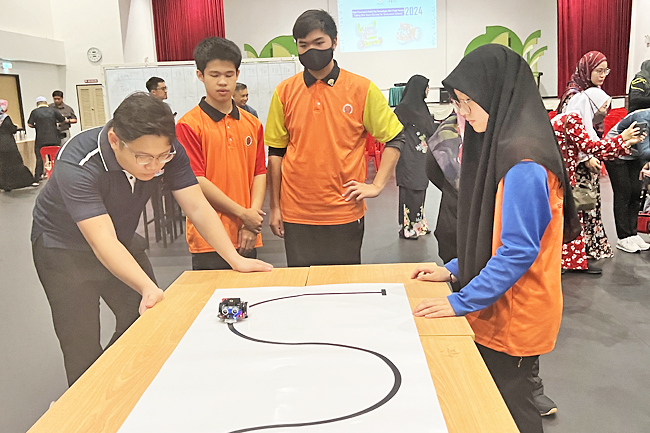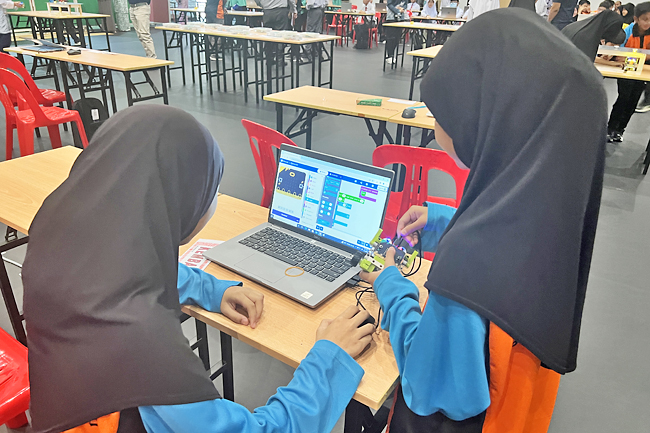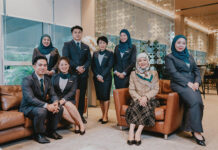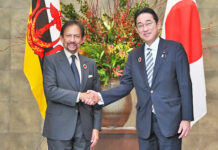Brought to you by

Teachers do more than simply deliver content and administer assessments; they guide students in critically evaluating information and using technology wisely.
Beyond this, they prepare learners to contribute to the advancement of knowledge by promoting interdisciplinary learning, particularly in Science, Technology, Engineering, Arts, and Mathematics (STEAM).
As Brunei Darussalam celebrates its 34th National Teacher’s Day under the theme ‘Quality Teachers – Drivers of Education Transformation’, it is crucial to spotlight the nation’s continuous efforts to bolster STEAM education.
A driving force behind this transformation is the Science, Technology, Environment Partnership (STEP) Centre under the Ministry of Education, dedicated to strengthening students’ proficiency in STEAM fields.
According to the centre, high-quality STEAM programmes are essential for equipping students with the skills they need to thrive in a fast-paced, ever-evolving society, including problem-solving, effective collaboration, and the ability to learn and unlearn.
“By prioritising the development of these skills, educators can help students empower their learning and become self-directed learners, better prepared for the challenges of the future and capable of making a positive impact on their communities and the world.”


ADAPTING STEAM EDUCATION TO GLOBAL CHALLENGES
In recent years, global challenges such as the aftermath of the COVID-19 pandemic and the increasing urgency of climate change have significantly reshaped the delivery of STEAM education in Brunei.
In response to these pressing issues, the students in STEAM programme emerged as a notable initiative, fostering independent learning by enabling students to engage in STEAM activities at their own pace while adapting to the evolving digital landscape.
“These challenges, however, also accelerated the adoption of educational technologies that push STEAM programmes to explore digital solutions and environmental sustainability as core focuses in the development and execution of STEAM programmes,” the centre noted.
This shift toward hybrid learning models not only addresses immediate educational needs but also creates valuable opportunities to integrate sustainability and environmental awareness into STEAM curricula.
This integration is essential, as highlighted by the centre: “Developing skills through STEAM is best done through hands-on activities while allowing not only effective peer-to-peer interaction but also cultivating better wisdom through co-operative learning to solve problems.”
Such an approach ensures that while students embrace digital tools, they also engage in collaborative, hands-on learning, effectively preparing them for the complex global challenges of the future.
“Recognising the pivotal role teachers play in this transformative process, the STEP Centre is committed to supporting educators in their efforts to enhance STEAM education.“
“STEP Centre offers various workshops, resources, and consultation to help teachers integrate STEAM into their teaching and learning pedagogies,” the centre shared.
By providing professional development and ready-to-use activities, the STEP Centre empowers teachers to bring real-world problem-solving into their classrooms, fostering a new generation of innovative thinkers equipped to tackle future challenges.
BROADENING PARTICIPATION IN STEAM
A key achievement of the STEP Centre has been its success in increasing student engagement in STEAM activities.
A total of seven key programmes were developed to boost student participation in STEAM activities.
These initiatives include the National STEM and Innovative Design Challenge, which fosters creativity through competition, and the Students in STEAM competition, aimed at inspiring innovation.
The REAL Learning pipeline offers a competitive platform to enhance skills, while the STEAM outreach programme focuses on training and expanding access to STEAM education.
Additionally, the Green-School Gardening initiative provides training and support for sustainability projects, complemented by the Green-School initiatives support platform.
Finally, the STEAM for Future programme equips students with essential skills for emerging fields.
The centre’s seven flagship programmes have broadened students’ awareness of global challenges like sustainability and encouraged participation from a more diverse range of learners.
“Noticeably, the seven iconic STEAM programmes of STEP Centre have significantly boosted student engagements and school participations in STEAM activities,” the centre noted.
These initiatives have not only increased student involvement but have also highlighted the importance of addressing global challenges through interdisciplinary learning.
Collaboration is essential for the STEP Centre’s success. By partnering with government agencies, higher education institutions, private companies, and non-governmental organisations (NGOs), the centre offers diverse learning experiences aligned with national development goals.
These partnerships provide students with real-world opportunities, including internships and hands-on experiences, bridging the gap between education and industry while equipping them with essential skills for a rapidly evolving society.
Inclusivity is another priority for the STEP Centre. By reaching out to schools in remote and rural areas, the centre ensures that students from all backgrounds have the opportunity to participate in STEAM activities.
“To ensure inclusivity, the STEP Centre actively engages with schools in various districts, especially those in remote and rural areas,” the centre added.
They monitor the activity levels of these schools each year and periodically reach out to those that are less active to provide support.
Through partnerships with organisations like Seria Energy Lab, the centre also provides mobile STEAM packages and workshops tailored to underrepresented groups, ensuring that no student is left behind.
“Additionally, STEP Centre tracks success through participation and feedback surveys, ensuring that our STEAM activities remain accessible, relevant, and impactful for learners at all levels.”






















































